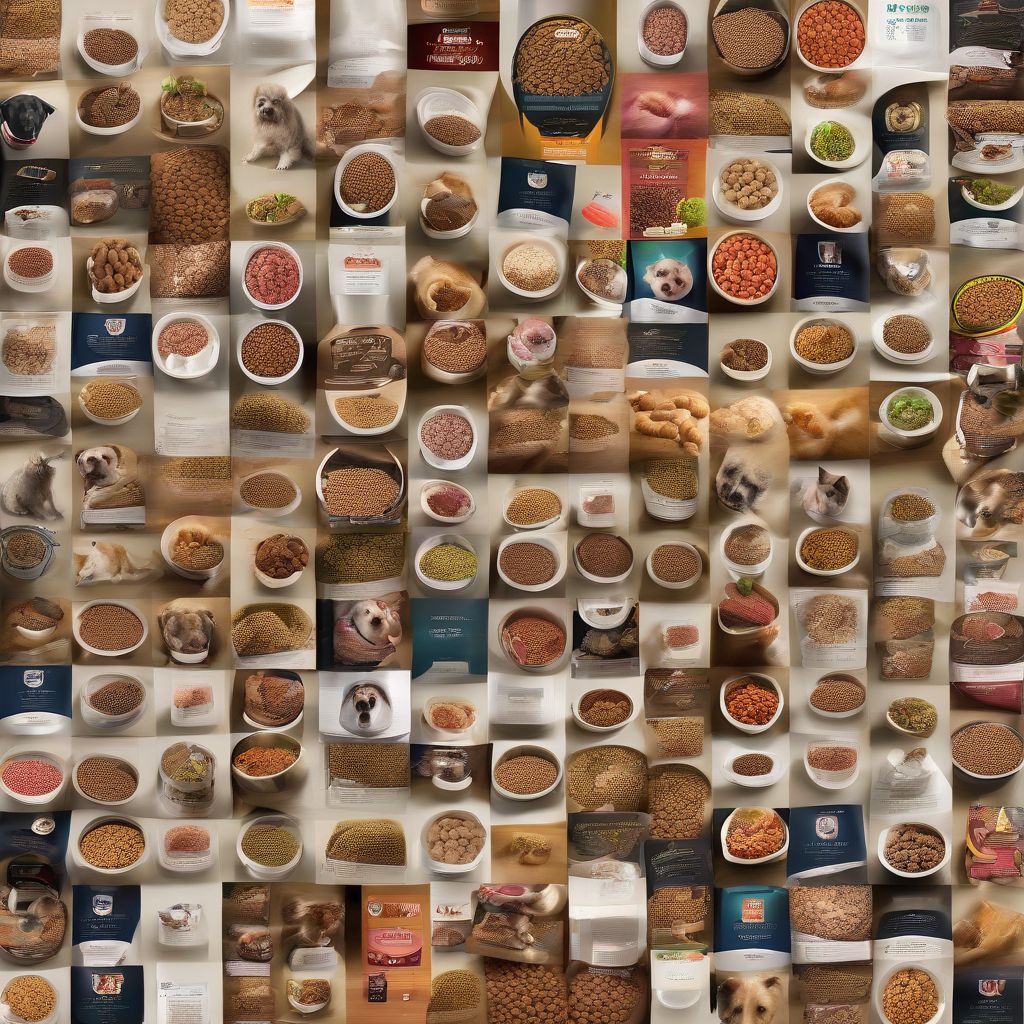Have you ever looked at your furry friend wolfing down their dinner and wondered if it’s truly the best food for them? Just like humans, different dog and cat breeds have unique nutritional needs. A Great Dane needs a very different diet than a Chihuahua, and a Maine Coon has different requirements than a Siamese. Choosing the right food is crucial for their long-term health and happiness, and this guide will empower you to make informed decisions for your beloved pet.
Understanding Breed-Specific Needs
Different breeds have varying predispositions to certain health issues. Large breeds, like German Shepherds and Golden Retrievers, are prone to hip dysplasia and require diets that support joint health. Smaller breeds, such as Yorkshire Terriers, can be susceptible to dental problems and benefit from kibble designed for dental care. Similarly, brachycephalic breeds (those with short noses, like Bulldogs and Persians) might need specially shaped kibble to make eating easier.
Size and Activity Level
A high-energy working dog, like a Border Collie, needs more calories and higher protein levels than a less active breed, like a Cavalier King Charles Spaniel. Consider your pet’s activity level when choosing a food. A sedentary pet might become overweight on a diet formulated for an active dog.
Age Matters
Puppies and kittens need diets rich in nutrients to support their rapid growth and development. Senior pets, on the other hand, often require fewer calories and specific nutrients to support their aging bodies. Look for age-appropriate formulas that cater to these changing needs. “As a nutritionist, I always emphasize the importance of life stage nutrition for pets. Just like human children have different needs than adults, so do puppies and kittens compared to adult or senior dogs and cats,” says Dr. Emily Carter, a veterinary nutritionist. (This quote is fictional, used for illustrative purposes).
Coat and Skin Considerations
Some breeds, like Huskies and Alaskan Malamutes, have thick double coats that require specific fatty acids for optimal health. Other breeds, like Bulldogs, are prone to skin allergies and might benefit from hypoallergenic or limited-ingredient diets.
 Choosing Food for Dogs and Cats
Choosing Food for Dogs and Cats
Decoding Pet Food Labels
Don’t be intimidated by the jargon on pet food labels. Learning how to decipher them is key to choosing the right diet.
The Guaranteed Analysis
This section lists the minimum percentages of crude protein, fat, fiber, and moisture. It provides a general overview of the nutrient content.
The Ingredient List
Ingredients are listed in descending order by weight. Look for whole meat sources, like chicken, beef, or fish, as the first ingredients. Avoid fillers like corn, wheat, and soy, which can be difficult for some pets to digest.
AAFCO Statement
The Association of American Feed Control Officials (AAFCO) statement indicates whether the food meets nutritional standards for a specific life stage (e.g., growth, maintenance, all life stages). Look for a statement that says the food is “complete and balanced.”
Researching Breed-Specific Diets
Consult Your Veterinarian
Your veterinarian is the best resource for personalized dietary recommendations. They can assess your pet’s individual needs, taking into account their breed, age, activity level, and any underlying health conditions.
Breed-Specific Resources
Many breed-specific organizations and websites offer valuable information on dietary recommendations. These resources can provide insights into common health concerns and suitable diets for your pet’s breed.
Online Reviews and Forums
While online reviews and forums can be helpful, it’s important to approach them with caution. Remember that every pet is different, and what works for one might not work for another. Always consult with your veterinarian before making any significant dietary changes. The book “Canine and Feline Nutrition” by Case, Carey, and Hirakawa (fictional book) is a recommended resource for in-depth information.
Commonly Asked Questions about Breed-Specific Diets
Do mixed breed dogs have specific dietary needs?
Yes, mixed breed dogs can inherit traits from both parent breeds, influencing their dietary requirements. Focus on their size, activity level, and any observable breed-specific characteristics when selecting a food, and consult your veterinarian.
What if my pet has food allergies?
Food allergies are common in pets. If your pet is experiencing skin issues, digestive problems, or other symptoms, consult your veterinarian for allergy testing and dietary recommendations. They may recommend a hypoallergenic or limited-ingredient diet.
Can I make homemade food for my pet?
While homemade diets can be an option, it’s crucial to ensure they are nutritionally complete and balanced. Consult with a veterinary nutritionist to create a recipe that meets your pet’s specific needs.
How often should I change my pet’s food?
Avoid frequent food changes, as this can upset your pet’s digestive system. If you need to switch foods, do so gradually over several days, mixing the old food with the new food.
Conclusion
Choosing the right diet for your pet’s breed is a vital part of responsible pet ownership. By understanding your pet’s breed-specific needs, decoding pet food labels, and consulting with your veterinarian, you can ensure your furry friend receives the optimal nutrition they need to thrive. Remember, a healthy diet is an investment in your pet’s long-term health and happiness. We encourage you to share this article with other pet lovers and leave your comments and questions below. What other tips do you have for choosing the right pet food?



